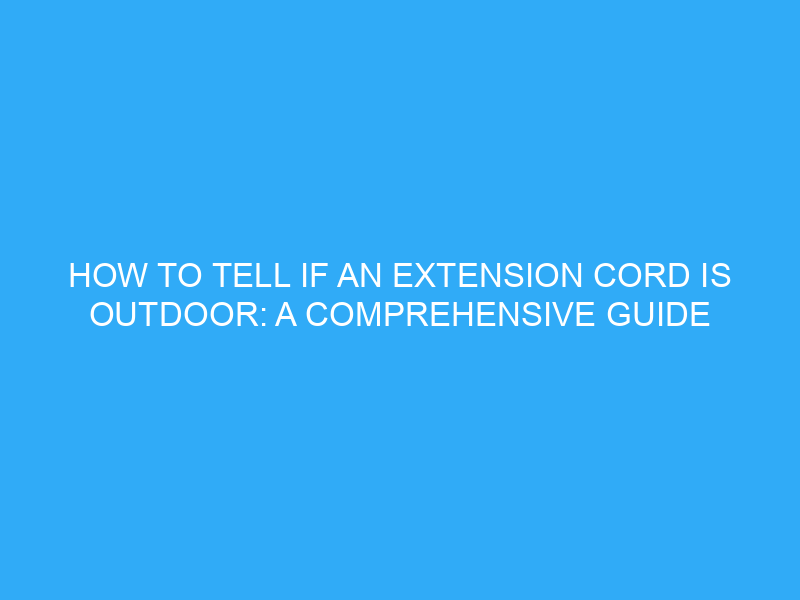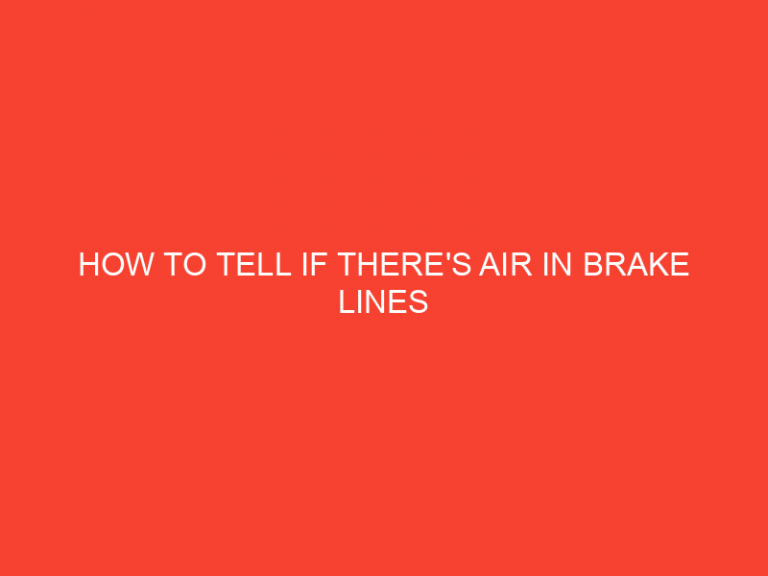Are you thinking of buying an extension cord but you’re not sure if it’s suitable for outdoor use? It’s an important question to answer before you buy, as using the wrong type of extension cord can be dangerous.
In this article, we’ll explain how to tell if an extension cord is outdoor, why using the right type is important, and provide additional safety tips for outdoor use.
How to Tell if an Extension Cord is Outdoor
The first step to finding an extension cord suitable for outdoor use is to understand the difference between indoor and outdoor cords. Outdoor extension cords have special features that make them suitable for outdoor use, including:
Jacket Material
The most basic and obvious difference between indoor and outdoor extension cords is the jacket material. Outdoor cords are made of rubber or plastic that can withstand exposure to moisture, sunlight and temperature changes. The jacket material of indoor cords, on the other hand, is not designed to withstand the same exposure.
Voltage Rating
The voltage rating of an extension cord tells you the maximum amount of voltage it can safely handle without becoming a fire hazard. Indoor extension cords are typically rated for up to 10 amps or 1250 watts, while outdoor cords are usually rated for up to 13 amps or 1625 watts.
Gauge
The gauge of an extension cord refers to the thickness of the copper wire inside the cord. Outdoor cords are usually thicker and have a higher number of copper strands than indoor cords. This allows them to carry more current and makes them more suitable for outdoor use.
Grounded and Polarized Plugs
Outdoor extension cords are usually grounded and polarized, meaning they have an extra prong that connects to the ground and helps protect against electrical shocks. Indoor cords often lack this extra prong and are not grounded or polarized.
Why Using the Right Type of Extension Cord is Important
Using the wrong type of extension cord can be dangerous. The wrong cord could overheat, become a fire hazard, or even cause electric shock. It’s important to always use the right type of cord for the job.
Safety Tips for Outdoor Use
Here are some tips for using extension cords safely outdoors:
Check for Damage
Before using your extension cord, check it for signs of damage such as fraying, cracking, or broken insulation. If you notice any damage, replace the cord with a new one.
Keep Away from Water
Keep your extension cord away from water whenever possible. If the cord is exposed to water, disconnect it immediately and allow it to dry before attempting to use it again.
Don’t Overload the Cord
Overloading the cord can cause it to overheat and become a fire hazard. Always make sure the total wattage or amps of the items you’re plugging into the cord does not exceed the cord’s rating.
Frequently Asked Questions about How to Tell if an Extension Cord is Outdoor
How do I know if an extension cord is rated for outdoor use?
Look for the jacket material, voltage rating, gauge, and grounded and polarized plugs. Outdoor extension cords are made of rubber or plastic, have a higher voltage rating, thicker gauge, and are grounded and polarized.
Can I use an indoor extension cord outdoors?
No, indoor extension cords are not designed for outdoor use and should not be used outdoors.
Can I use an outdoor extension cord indoors?
Yes, outdoor extension cords can be used indoors as long as they are rated for the wattage or amps of the items you’re plugging into it.
Are all outdoor extension cords the same?
No, different types of extension cords are designed for different uses. Make sure to read the label on the cord and choose one that is rated for the wattage or amps of the items you’re plugging into it.
Conclusion
Knowing how to tell if an extension cord is outdoor is an important step in choosing the right cord for the job. Outdoor extension cords are made of rubber or plastic, have a higher voltage rating, thicker gauge, and are grounded and polarized. Always check for signs of damage and keep the cord away from water, and never overload the cord.
By following these tips, you can ensure your outdoor extension cord is up to the job and you’re staying safe.






